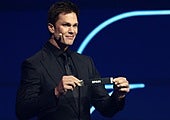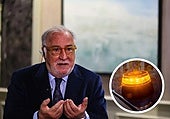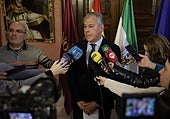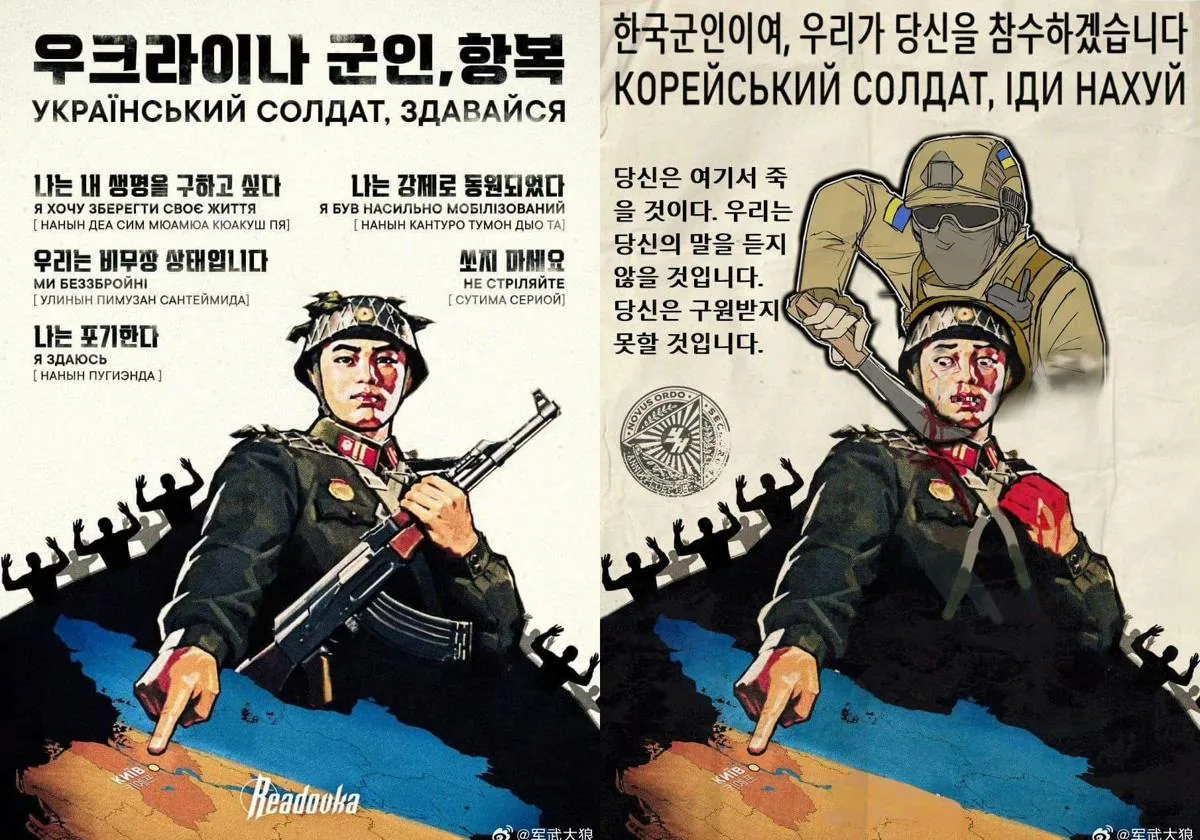North Korea Enters Ukraine War and China Agrees Peace with India
The potential deployment of North Korean troops to Russia to support Putin could significantly alter the rules governing the invasion of Ukraine.
Zigor Aldama
Wednesday, 23 October 2024, 11:05
North Korea and Russia share only 17.2 kilometers of border, more than enough to avoid involving China in the journey. If it is confirmed that North Korean soldiers end up fighting Ukrainians on the battlefield, Kim Jong-un would effectively be declaring war on the country led by Zelensky. It would also further expose Russian hypocrisy, which threatens to escalate the conflict if Kyiv uses Western weaponry to attack Russian territory or if NATO forces operate in any way in Ukraine. For now, Moscow already uses weaponry manufactured in Iran or North Korea in its invasion, two dictatorships that compensate for Russia's inability to produce all the weaponry it requires in its invasion and share with Putin the disregard for the suffering of their subjects.
Following this information, a poster designed with the usual aesthetics of North Korean propaganda circulates on social networks, where a soldier from that country points to Kyiv with his finger under a text urging Ukrainian soldiers to surrender to save their lives. This viral image bears the seal of a Russian online media outlet and has already received a strong response in Ukraine: the same poster shows a Ukrainian soldier beheading the North Korean. "Go to hell," it reads.
Therefore, today we turn our attention back to the invasion of Ukraine.
These are the topics we will address:
-
A victory plan for TikTok.
-
The BRICS start their Russian summit with peace between China and India.
The South Korean Defense Minister, Kim Yong-hyun, considers it "very likely" that North Korean soldiers have already died in the invasion of Ukraine. Specifically, the leader stated on the 8th that there are indications that this happened on the 3rd around Donetsk. Russia has not categorically denied it, so there is a possibility that evidence will soon emerge proving this has happened, confirming a substantial change in the war.
Because one thing is to look the other way and economically benefit, as China does, and quite another to participate in an illegal invasion with weaponry and personnel. This fact could facilitate Zelensky's justification for his long-desired approval to use NATO weaponry in attacks within Russia. It could also mean that the Atlantic alliance participates with 'boots on the ground'. However, on the other hand, it would increase the chances of the conflict escalating.
Despite the situation becoming more complicated, Zelensky remains convinced that Ukraine can emerge victorious without losing a kilometer of its territory. Moreover, last week he presented a 'victory plan' that seems ready to be published on TikTok. Due to its brevity and the infeasibility of its five points: extending a formal invitation to the country to join NATO, removing the restriction on using its weaponry against Russia - this seems the easiest goal -, deploying non-nuclear deterrent weapon systems, the protection by the United States and Europe of Ukrainian natural resources for joint commercial exploitation, and the replacement - when the conflict ends - of US troops stationed in Europe with Ukrainian ones.
Zelensky, on the other hand, refuses to halt his forces' incursion into the Russian region of Kursk and rejects any negotiation that involves ceding his territory, including Crimea. This last demand seems unrealistic, especially considering that the peninsula has been in Putin's regime's hands for a decade and that part of the Donbas genuinely prefers to be administered from Moscow.
It is logical to start a negotiation from a position of maximum demands, but almost three years have passed since the large-scale invasion began, and the tragedy does not cease. It is also logical to sympathize with the refusal to allow Putin to claim a victory, no matter how small, but it must be considered that this is causing a torrent of death and destruction in a country that will require a massive economic effort to recover when the weapons fall silent. The longer the conflict lasts, the greater the sacrifice.
The BRICS is a heterogeneous group of countries that share a medium level of development. It receives little attention in the West, and that is a mistake because it encompasses almost half of the world's population, adds up to 28 trillion dollars of GDP, and continues to gain influence. In 1992, the G7 represented 45.5% of global wealth, while the BRICS contributed only 16.7%. Last year, the tables had turned: the BRICS accounted for 37.4% of global GDP compared to the G7's 29.3%. Moreover, it is a group that is expanding, as it started with Brazil, India, China, and Russia, then added South Africa, and has already decided to stop extending its acronym with the entry of Egypt, Ethiopia, Saudi Arabia, and Iran.
Many consider it the authoritarian side of global geopolitics, and there is reason to think so. Especially considering that its summit began yesterday in Kazan, Russia, in a not-so-veiled support for Vladimir Putin. But that is a simplistic image because while these countries share certain interests, they are also separated by significant differences. Some even come to blows.
This is the case of the territorial conflict between India and China on the Himalayan border. It is an old quarrel, but since 2020 it has intensified with a couple of episodes where soldiers from both powers have clashed, leaving dozens dead. Now, as if they wanted to start the summit on a positive note and demonstrate that the BRICS can be a forum that promotes harmony, the two Asian giants have reached an agreement to bury the hatchet: according to Indian Foreign Secretary Vikram Misri, and later confirmed by Beijing, an agreement has been reached to resume patrols along the Line of Actual Control, the temporary dividing line between them.
It is one of the few positive news in recent times on the global geopolitical board. It shows that the BRICS members intend to resolve their differences to increase their level of interaction and reduce dependence on traditional powers. An example of the latter is also the plan to weaken the US dollar. Lula Da Silva asked a year ago for the bloc to create its own currency and payment system "to increase payment options and reduce vulnerabilities" that the use of the dollar entails, and this year it seems that this strategy will be deepened, which would be vital for Russia given the disconnection from the Western financial system caused by sanctions. For now, that goal is far off.
But another thing the summit, attended by representatives from 33 countries, highlights is that the Kremlin's isolation promoted by the West is having little success. No wonder, Putin himself proudly pointed out yesterday that it is the largest diplomatic meeting hosted by Russia.
That's all for today. I hope I have explained something about what is happening in the world well. If you are subscribed, you will receive this newsletter every Wednesday in your email. And, if you like it, it will be very helpful if you share and recommend it.





